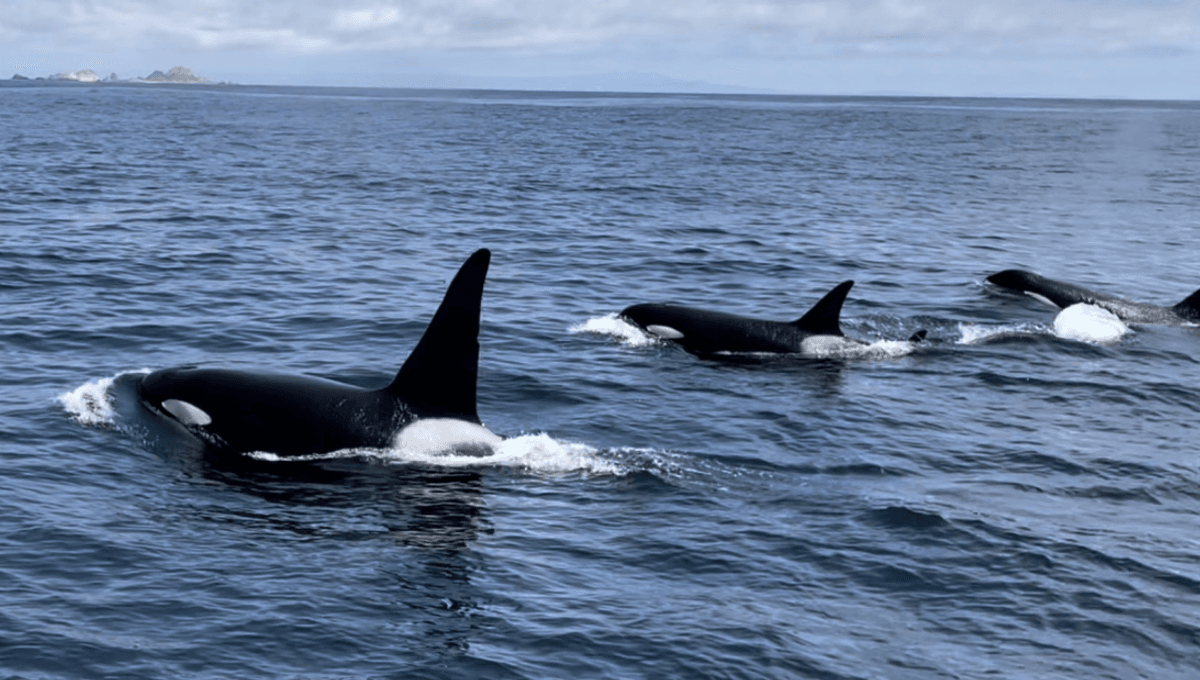
A grim video shows the meticulous and deadly way orcas are attacking the largest fish in the ocean as a pod descend on a whale shark and suck out its liver. It’s not a pleasant watch but it is a fascinating and rare one, demonstrating the way in which orcas have learned to target large prey items and eat only the good bits.
Orcas are known to be fond of dining on the livers of the predatory great white, Carcharodon carcharias, with many carcasses having been discovered on beaches with their vital organs seemingly surgically removed. For a mammal without hands, orcas – Orcinus orca, aptly known as killer whales – have adapted an impressive technique for performing the procedure.
In the case of great whites, orcas have been observed capitalizing on “tonic immobility” in which flipping a shark sends it into a catatonic state. Orcas have been observed ramming into sharks to disorientate them before swimming around with them trapped upside-down in their jaws. Once the shark is catatonic, the orcas can safely get to work slicing into its belly.
Now, a new video filmed by James Moskito, CEO of Ocean Safaris, shows a whale shark undergoing the same deadly procedure.
Whale sharks, Rhincodon typus, are the world’s biggest sharks and fish (although the Mola mola is heavier). Their enormous size means they have few predators, but evidently being big isn’t enough to keep you safe when orcas are lurking.
The grisly footage from Moskito may be the first known video that shows such a predator-prey interaction between orcas and whale sharks. In it, we see orcas approaching a whale shark estimated to be around 18 meters (60 feet) long, until one of them suckers onto its underbelly.
“They came in, they bit the bottom of the whale shark,” Moskito told LiveScience. “Looks like they slurped in the liver and then the whale shark just fell and descended down, with no movement – I’m assuming it was dead.”
The killing spree continued as the team on the scene saw the orcas go on to attack and kill a second whale shark shortly after. It’s an unfortunate fate for arguably the oceans’ nice guys, as despite their massive size whale sharks are considered gentle giants that filter-feed for small prey like plankton, squid, and sardines.
The knowledge of the nutritional value of livers is something that may have spread among orca pods socially through cultural transmission, which is the same way these marine mammals have perfected the art of attacking yachts and destroying their rudders, seemingly in retaliation for vessel strikes. It makes sense that orcas would target the liver when trying to meet their daily energy demands as these buoyant organs are packed full of oils.
Targeting the fattiest 10 percent? That’s how you eat (the) rich.
Source Link: World's Largest Shark Has Its Liver Sucked Out By Orcas In Gruesome Video